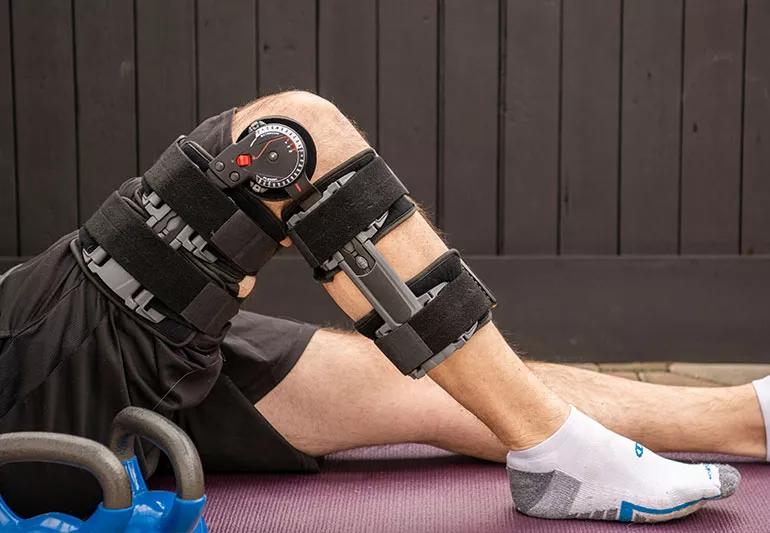Sports medicine physicians can get you back on track

Image content: This image is available to view online.
View image online (https://assets.clevelandclinic.org/transform/dbccdaaa-1ce2-41e6-8759-7c3511243c50/AthletePainTherapy-MLC-2071830-770x533-1_jpg)
A person lying on a mat and wearing a knee brace
Whether you’re a weekend warrior, competitive athlete, regular recreational exerciser or simply an active individual, you know a nagging tendonitis or skin infection can halt you in your tracks.
Advertisement
Cleveland Clinic is a non-profit academic medical center. Advertising on our site helps support our mission. We do not endorse non-Cleveland Clinic products or services. Policy
That’s where sports medicine physicians step in.
“If an injury or illness gets in the way of your performance or being active, we develop a plan to quickly and safely get you back on track,” says sports medicine physician Marie Schaefer, MD.
Instead of toughing it out, a sports medicine physician can get you back to an active lifestyle. Read on to find out how.
More than 90% of all sports injuries don’t require surgery. Medical sports medicine physicians work alongside orthopaedic sports medicine physicians and other specialists — in the office and on the sidelines, from high school to professional level teams — to diagnose and manage acute and chronic musculoskeletal problems such as:
Additionally, Dr. Schaefer says sports medicine physicians are trained to treat non-musculoskeletal aspects of sports medicine such as:
Advertisement
Medical sports medicine physicians can also guide patients in decisions regarding nutrition information (including supplements), ergogenic aids and performance issues. They can also recommend exercise prescriptions if you want to increase your fitness levels, prevent injury during a sport or fitness program or help with return-to-play decisions if you’re sick or injured.
Finally, Dr. Schaefer says your sports medicine physician can make recommendations on safe strength training and conditioning exercises, and ways you can embrace a healthy lifestyle.
Dr. Schaefer says sports medicine physicians won’t just treat your symptoms. They’ll look into the cause of your symptoms, too.
“We look at why your injury or problem occurred and determine how best to treat it,” Dr. Schaefer says. “And we help prevent recurrences by addressing the condition or ailment that played a role in your injury in the first place.”
If you need further care, your sports medicine physician will guide you and expedite your referral to a surgeon, musculoskeletal radiologist, physical therapist, sports dietitian or sports psychologist.
Sports medicine physicians are first trained and board-certified in one of the following specialties:
They also complete one or two years’ training through a fellowship in sports medicine, a field dedicated to the comprehensive care of athletes and active individuals.
“Sports medicine physicians treat the whole person,” Dr. Schaefer says, including providing education, tips on prevention and treating injuries as well as information on non-surgical treatment options and ongoing care. “They’re able to evaluate and manage multiple conditions in the same active person or athlete to provide a lifetime of care.”
Sports medicine physicians utilize additional tools to treat musculoskeletal issues including the following procedures:
So whether you’re a recreational athlete, a pro, or someone who wants to become active, a sports medicine physician can help you become — and stay —active in the activity or sport you love.
Advertisement

Sign up for our Health Essentials emails for expert guidance on nutrition, fitness, sleep, skin care and more.
Learn more about our editorial process.
Advertisement
How to bounce back when a gymnastics injury has sidelined you
Help your gymnast stay healthy and strong with proper training and nutrition
Follow guidelines to limit pitches, rest between games
How to exercise as you age
And 5 common mental blocks after injury
Young athletes see back, hip and leg injuries
Elastic therapeutic tape can provide extra support, but it can’t improve your stats
Proper form is important when pivoting, turning and landing
Type 2 diabetes isn’t inevitable with these dietary changes
Applying a hot or cold compress can help with pain
Pump up your iron intake with foods like tuna, tofu and turkey